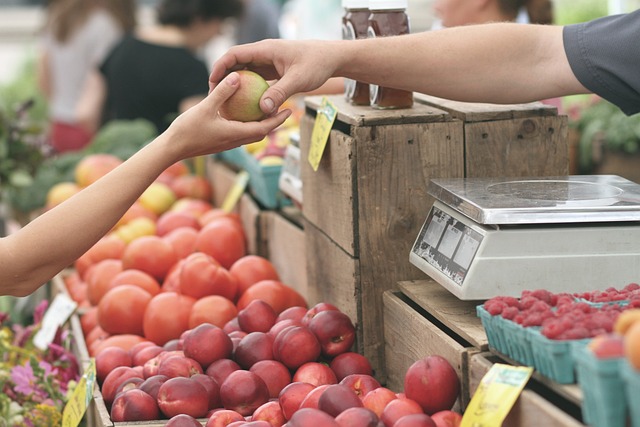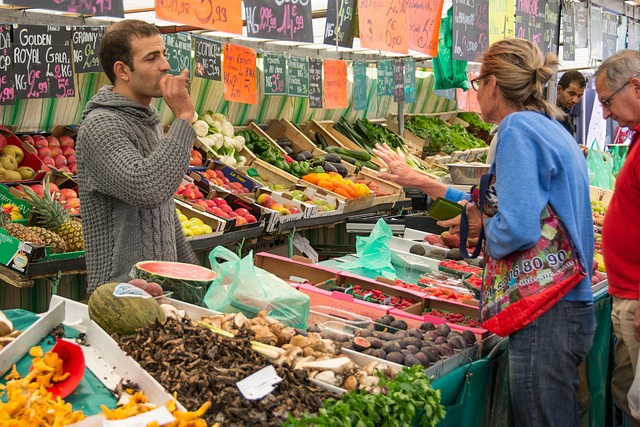The modern dining scene benefits greatly from local food delivery and meal preparation services catering to diverse dietary needs, including food allergies and intolerances. These platforms offer specialized solutions with allergy filters, customized menus, and partnerships with specialists. Chefs employ strategies like ingredient substitutions and strict hygiene to create safe, delicious meals tailored to individual requirements, ensuring inclusivity for all, regardless of dietary constraints.
In today’s diverse culinary landscape, catering to various dietary needs is paramount. Food allergies and intolerance affect millions, demanding accommodating solutions. This comprehensive guide explores understanding food allergies and intolerance, highlighting the pivotal role of local food delivery services in providing safe, delicious options. Additionally, it delves into practical meal preparation techniques that ensure everyone can enjoy a diverse and inclusive dining experience, emphasizing the importance of both local food delivery and meal preparation for meeting these special dietary requirements.
- Understanding Food Allergies and Intolerance: A Comprehensive Guide
- The Role of Local Food Delivery Services in Accommodating Special Dietary Needs
- Meal Preparation Techniques to Ensure Safe and Delicious Options for All
Understanding Food Allergies and Intolerance: A Comprehensive Guide

Understanding food allergies and intolerance is crucial for anyone navigating modern dining, especially with the rise of diverse dietary needs. These conditions can range from mild discomfort to severe, life-threatening reactions. Food allergy involves an immune system overreaction to specific proteins in foods, while intolerance often relates to difficulty digesting certain substances, such as lactose or gluten. Recognising and managing these conditions requires a deep dive into ingredients, cooking methods, and local food delivery services that cater to diverse dietary requirements.
Local food delivery and meal preparation plays a significant role in accommodating these needs. Many platforms now offer filters for allergy-friendly meals, ensuring customers can easily find options free from common allergens like nuts, dairy, or gluten. Meal preparation services specialised in creating customised, allergen-free menus cater to those with specific dietary restrictions. This shift towards inclusivity not only enhances the dining experience but also empowers individuals with allergies and intolerance to fully participate in social gatherings and enjoy meals outside their homes without worry.
The Role of Local Food Delivery Services in Accommodating Special Dietary Needs

In today’s diverse culinary landscape, local food delivery services play a pivotal role in catering to individuals with specific dietary requirements, including those with food allergies and intolerances. These services offer tailored solutions for customers seeking convenient access to meals that align with their unique needs. By specialising in local food delivery and meal preparation, these platforms ensure that people with special dietary constraints can still enjoy a variety of cuisines without compromising their health.
Local food delivery apps have streamlined the process of ordering meals prepared according to specific dietary guidelines. Customers can now easily filter options based on allergy information, ensuring they receive dishes free from common allergens. Moreover, many delivery services partner with restaurants and chefs who specialise in creating culinary masterpieces suitable for various dietary restrictions, thereby enriching the overall dining experience for everyone.
Meal Preparation Techniques to Ensure Safe and Delicious Options for All

In the realm of local food delivery and meal preparation, accommodating food allergies and intolerances is a delicate yet crucial task. Chefs and catering services must be adept at modifying dishes to suit diverse dietary needs while ensuring both safety and taste remains paramount. Techniques such as ingredient substitution, careful labeling, and meticulous kitchen practices are essential tools in this culinary crucible. For instance, substituting dairy for plant-based alternatives or using different cooking oils can cater to those with lactose intolerance or specific dietary preferences.
Meal preparation that considers allergies and intolerances often involves a symphony of strategies. This includes separate preparation areas for allergenic foods, thorough cleaning protocols between dishes, and clear communication with customers about ingredient sources. Such meticulousness not only prevents adverse reactions but also allows individuals with dietary restrictions to enjoy a variety of delicious meals. By embracing these practices, local food delivery services can foster an inclusive environment where everyone can indulge in culinary delights without compromise.
In conclusion, understanding food allergies and intolerance is key to fostering inclusive dining experiences. Local food delivery services play a vital role in accommodating special dietary needs by offering tailored options. Additionally, mastering meal preparation techniques ensures that everyone can enjoy safe and delicious meals. By combining these strategies, we can create a more inclusive culinary landscape where everyone feels welcomed and nurtured.














